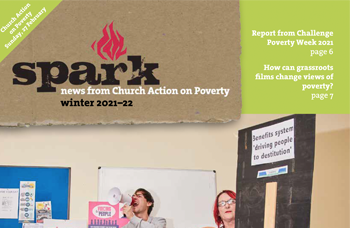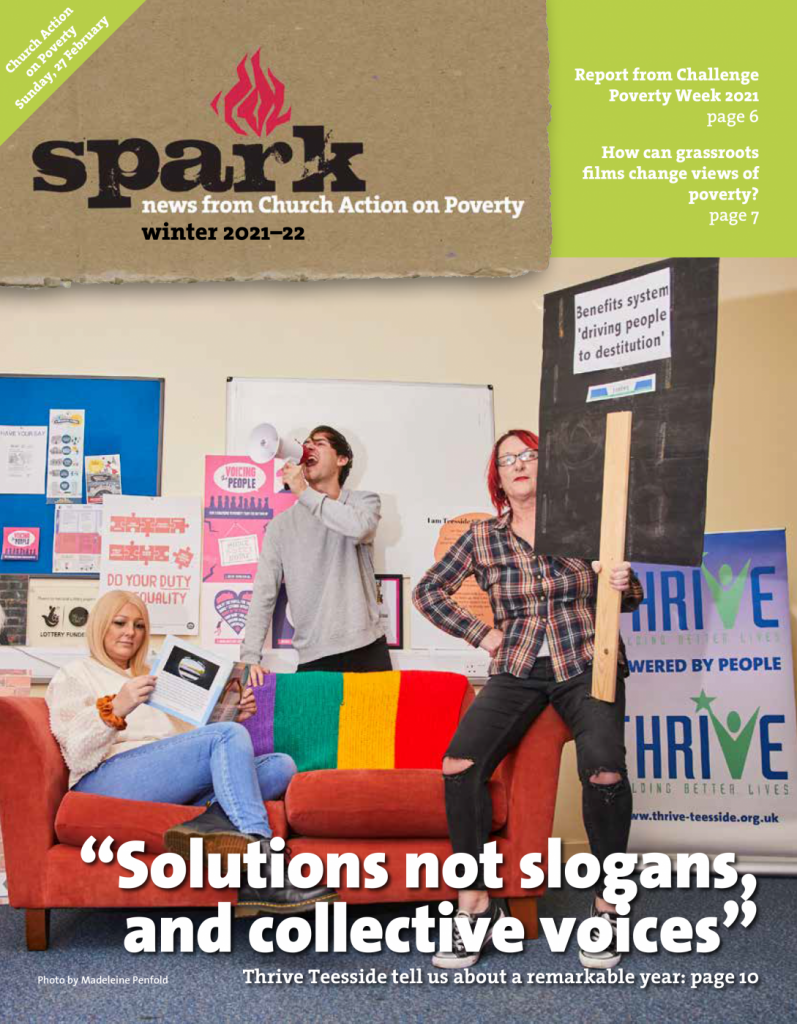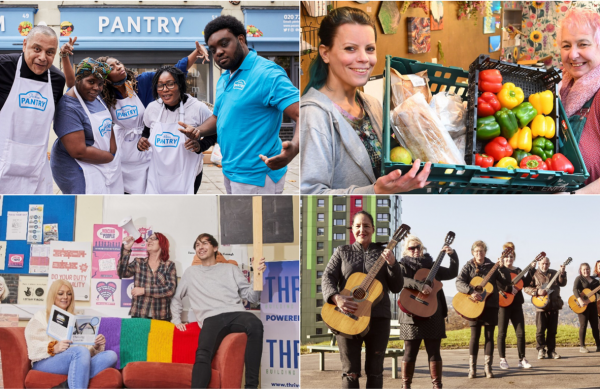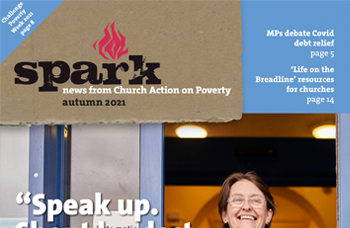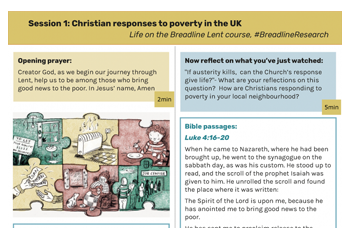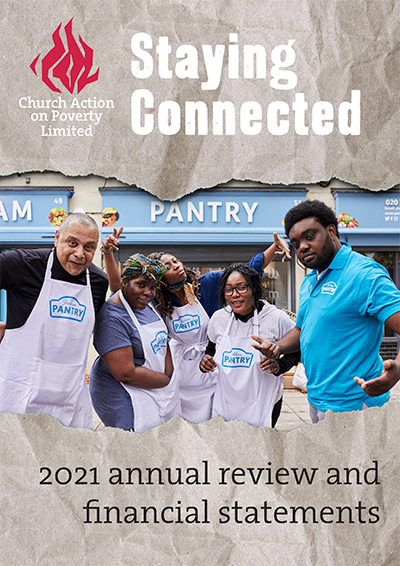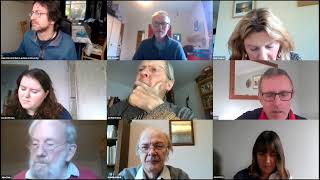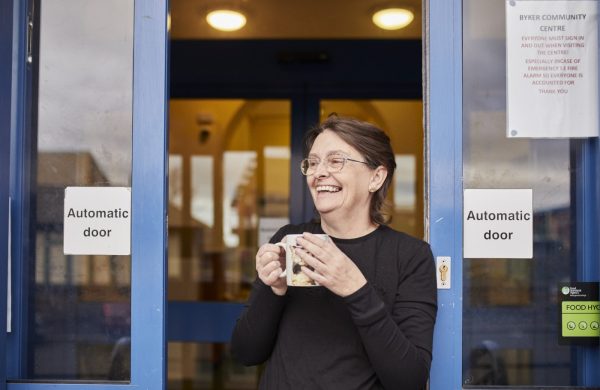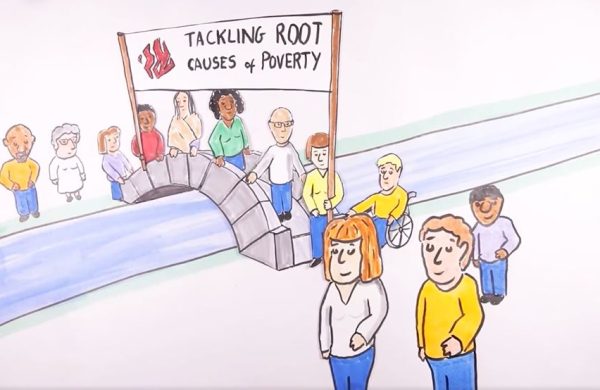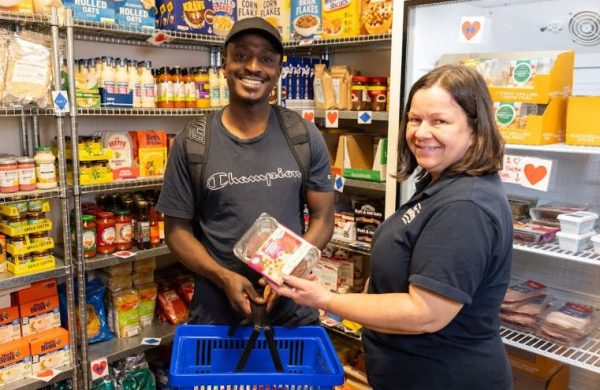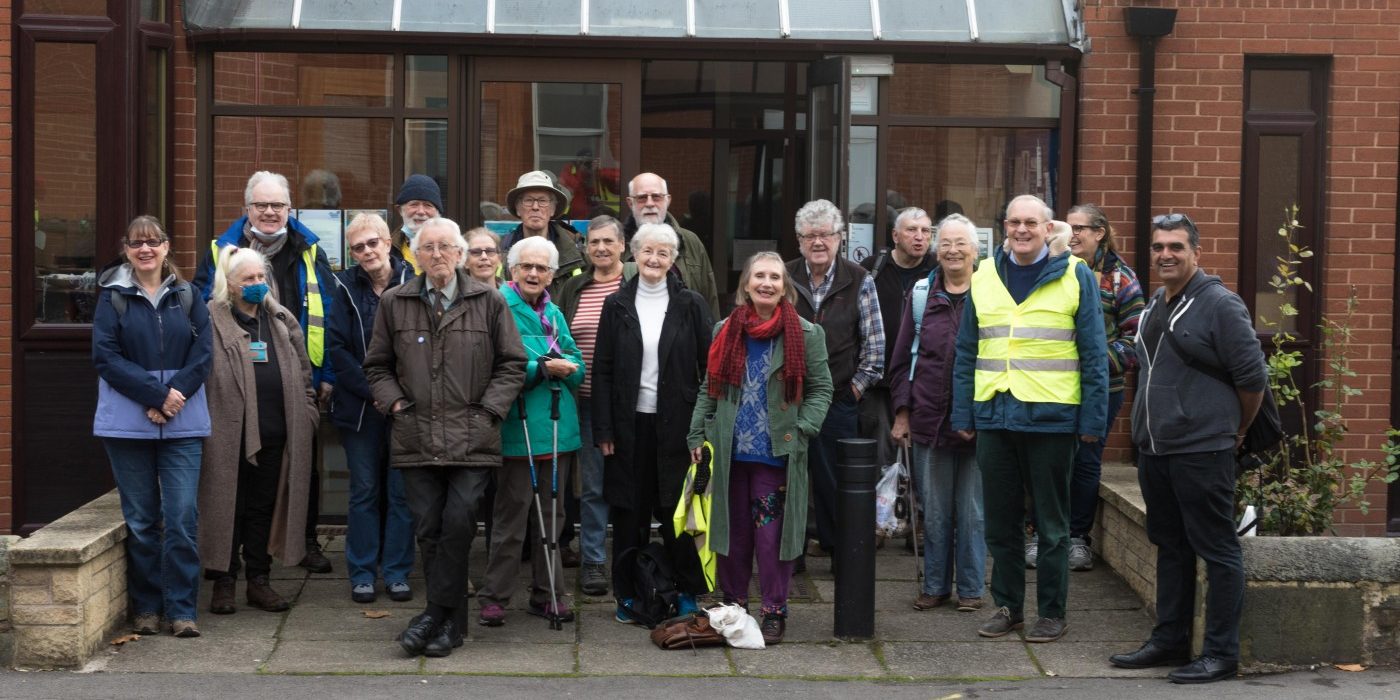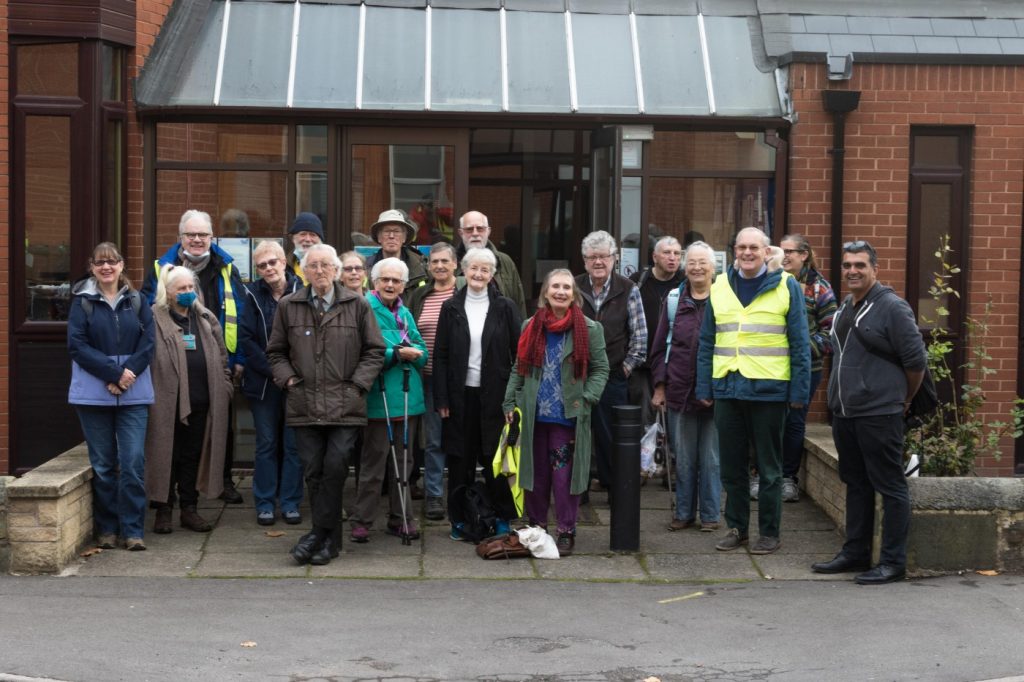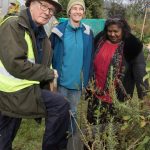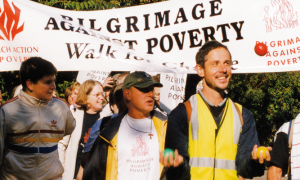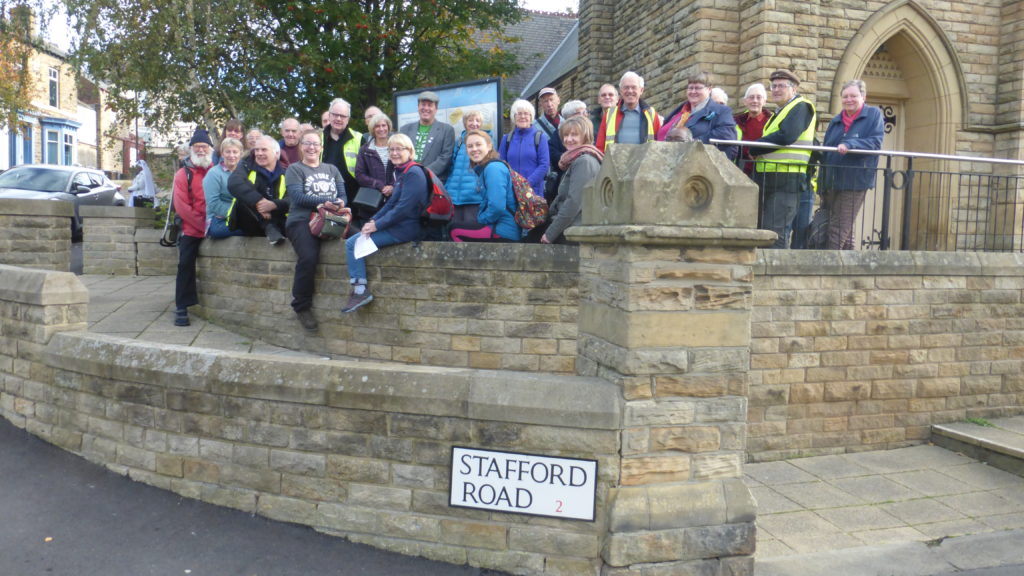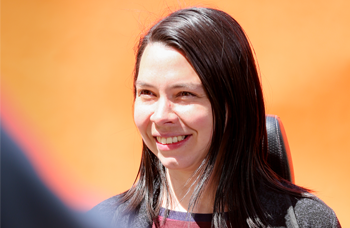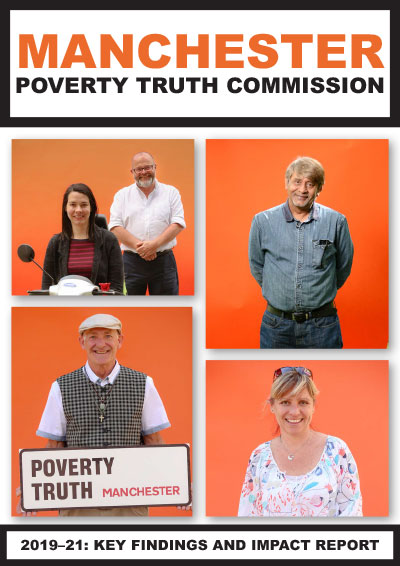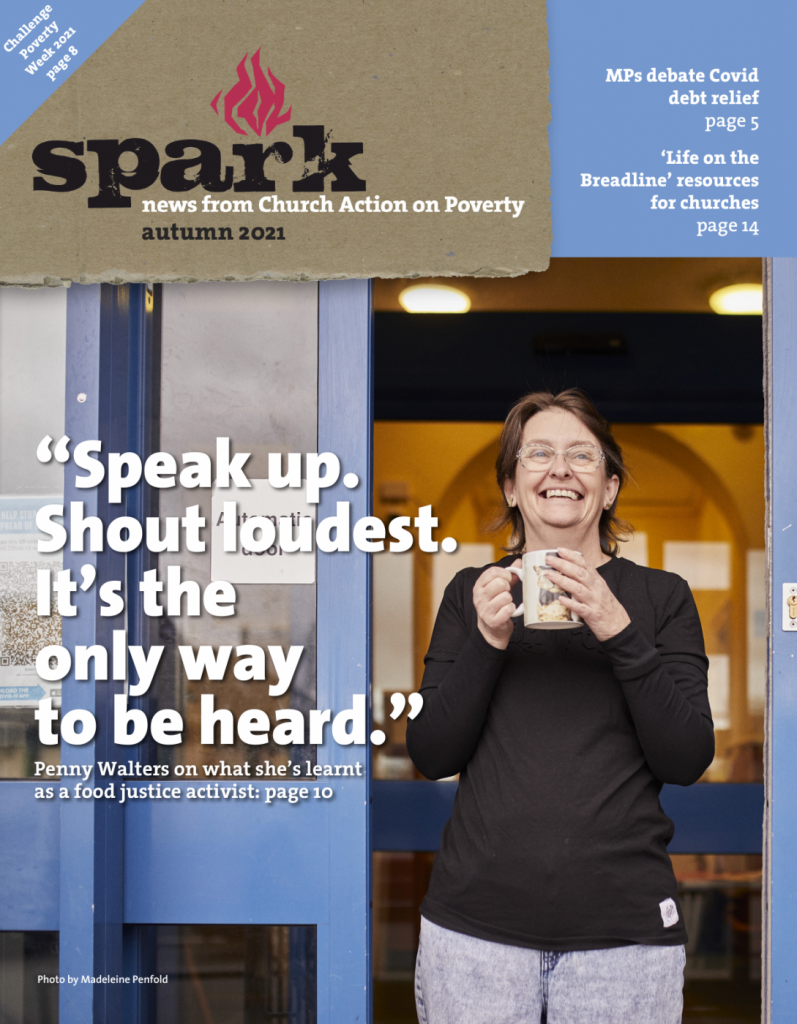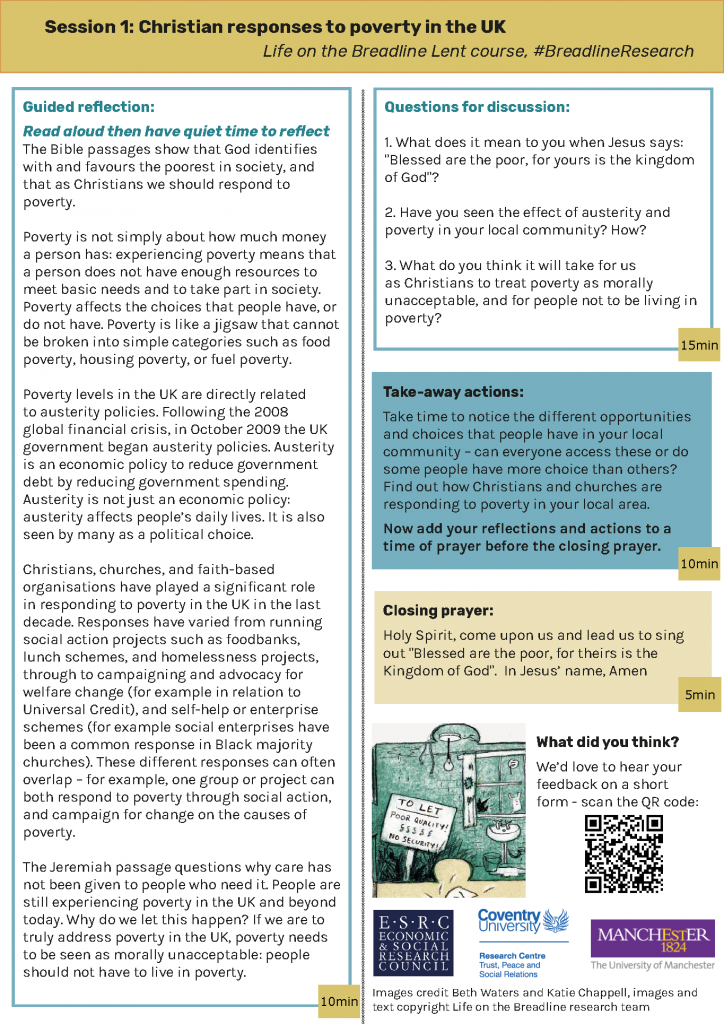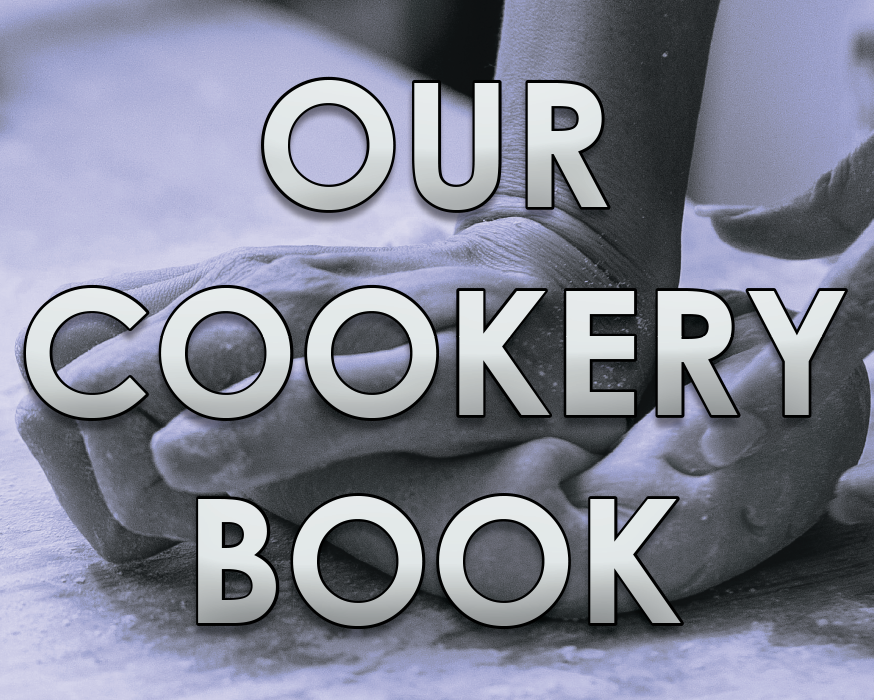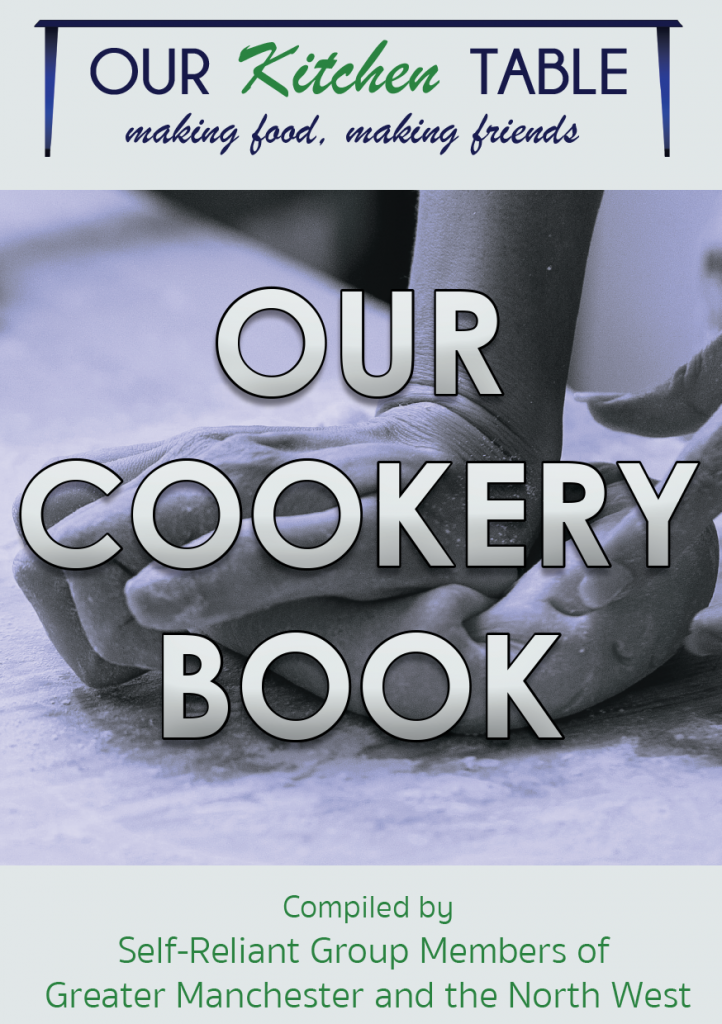As Church Action on Poverty Sunday apoproaches, a member of the United Reformed Church's Northern Synod shares his reflections on Church Action on Poverty's vision and strategy.
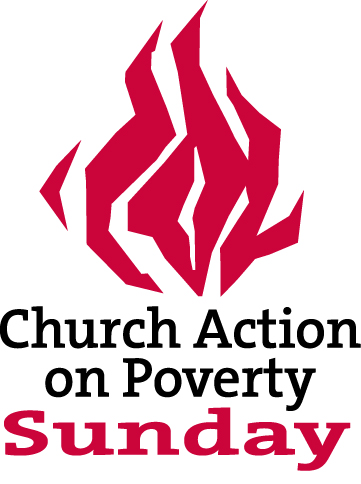
Later this month, Sunday 27 February to be precise, is Church Action on Poverty Sunday. On that afternoon the new national strategy for Church Action on Poverty will be launched at an event in Waddington St URC in Durham.
Those present at that event are going to be asked to discuss two questions:
- What should churches do to eradicate poverty?
- What will they actually do?
Until recently I knew very little about Church Action on Poverty and so I looked at their website to find out more about their aims, and this is an extract:
“Church Action on Poverty aims to build a movement that can loosen the grip of poverty in the UK. Our projects are hugely diverse and cover a wide area but have one thing in common: they all tackle the root causes of poverty. Tackling unjust Government policies… Amplifying the voices of people who have been marginalised… Challenging harmful business practices… Holding the church to account…”
As I read it, I thought, “tackling unjust Government policies….”, good; “Amplifying the voices of the marginalised…”, about time too; “Challenging harmful business practices…”, quite right; and then I came to the last phrase “Holding the church to account…” That caught my eye. What’s going on here, wait a minute. “Holding the church to account.”
Every Sunday we are invited as individuals to confess our sins and receive forgiveness. We hold ourselves accountable to God. But what about being held to account for what we do as a church, local, synod and national?
How do you feel at the thought of the Church being held accountable here on earth by another group, let alone society as a whole?
We know that the Church is seen by many as irrelevant and disengaged on key issues. If the many are right, that surely is one form of accountability.
Who speaks for the Church? Well, in a very real sense we all do, as individuals and members. Perhaps we need the prod of being held accountable to ensure that we can attempt to answer questions like those being posed by Church Action on Poverty on 27 February.
In this century the Church cannot claim to be unaware of the sufferings in the world, always too numerous to list and often overwhelming. And as a result, do we take refuge in looking after ourselves and our tomorrows when for lots of people the grim reality of today is all there is?
The pandemic has brought untold distress emotionally and financially to many. It has become painfully obvious that some of the support services we thought were resilient have been proven to be threadbare and unavailable to those who need them, when they need them most. There are no quick fixes but what is our response now as Christians, and in this instance as the Church to the significant issues faced by many in our society?
If we take our Christian calling seriously, it is surely not unreasonable to be asked what we are doing about all of this, i.e. to be held accountable.
Take food banks, a relatively recent phenomenon in the UK. Remember the outcry when they were started – and yet why do we now appear to accept them as a necessary part of our social fabric? They do not have to exist, but it will take structural economic reform to sort that one. In the meantime, we quite rightly host food banks, provide a friendly face and a welcome, and in reality, dealing well…… but with only half of the story!
I then got thinking about climate change and the helpful processes available under the A Rocha Eco Church (www.arocha.org.uk) These processes are in effect an audit of a local church’s green credentials.
What if processes like these were available to audit all levels of the church’s activities on tackling poverty, social justice, helping the marginalised and so on? Would they help us to focus our wider mission…?
And if we were seen to be tackling these broader issues, unjust Government policies, amplifying the voices of the marginalised, challenging harmful business practises, etc… would the Church be recognised as more relevant and engaged; and recognised or not, would we then welcome the Church being held accountable…. Just wondering!!
Sandy Ogilvie is a member of the United Reformed Church’s Northern Synod. This article first appeared in the Synod’s e-newsletter and is reproduced by permission.

Be part of a movement that’s reclaiming dignity, agency and power

